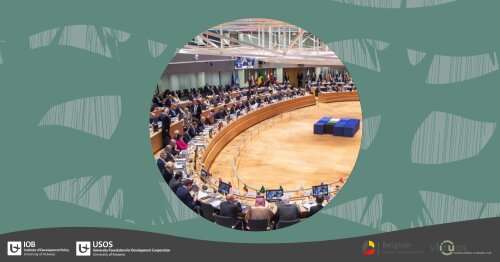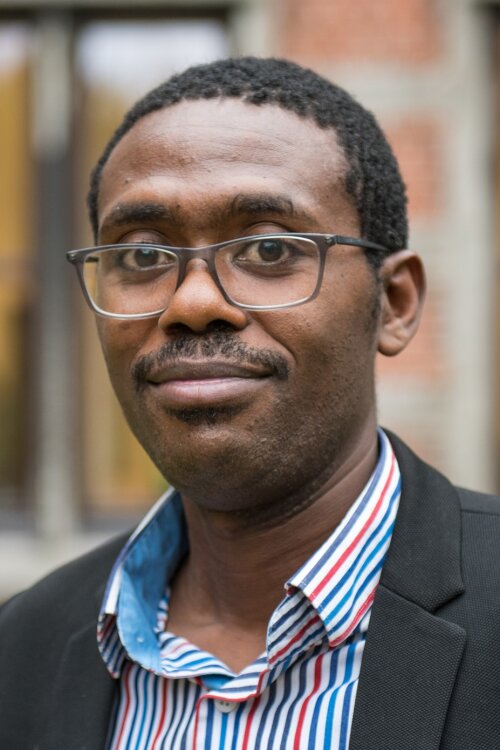Teaser video

Watch the recording of the webinar

A decolonial critique of state building interventions

This session extends the debate on development into the realm of international statebuilding interventions and the role of decolonial critiques in it. It, inter alia, conceptualises decoloniality and decolonization in the context of post-development debates and focuses particularly on the tension between metaphorical decolonization and the more fundamental challenge of substantively working towards decolonization in relation to the damage and violence wrought by the modern-colonial capitalist system. It also addresses the problem that statebuilding (and contemporary interventionism in its entirety) are overwhelmingly conceived as modernist endeavour and are thus inextricably linked with modernity, capitalism, exploitation and violence while no effective alternatives of statebuilding and intervention have been imagined beyond a localized level so far.

The keynote speaker is Philipp Lottholz. He is a Post-Doctoral Fellow at the Collaborative Research Centre/Transregio 138 “Dynamics of Security” and the Institute for Sociology, Justus-Liebig-University Giessen, Germany.
His research focuses on political and social change in post-Socialist Central Asia and Eastern Europe, and in particular evolving trajectories of statebuilding, peacebuilding and security practices.
Outputs from his PhD research on community security, interethnic reconciliation and ‘politics of difference’ have been published in International Peacekeeping, Journal of Intervention and Statebuilding, Central Asian Survey, and in the edited collections Interrogating Illiberal Peace in Eurasia – Critical Perspectives on Peace and Conflict (Rowman & Littlefield) and Hybridity: Law, Culture and Development (Routledge). This perspective is further extrapolated into debates on post-/decolonial thought in a special issue titled “Decolonial Theory & Practice in Southeast Europe” (co-edited with Polina Manolova and Katarina Kušić for dVERSIA).

The discussant is Abiosseh Davis. She is the Global Monitoring, Evaluation and Learning Manager at Interpeace. She has over ten years of experience providing technical and management support for the design, implementation, monitoring and evaluation of peacebuilding, democracy and governance initiatives.
Prior to joining Interpeace, Abiosseh served as an M&E specialist at Counterpart International where she provided support for monitoring progress and evaluating impact for projects implemented in over 22 countries.
A passion for inclusive development, quality interventions and learning for improvement have shaped Abiosseh’s career. She enjoys leading processes for strategic thinking and analysis to develop contextually appropriate strategies to advance peace and development. Beyond design, monitoring and evaluation, Abiosseh has specialized expertise in organizational development, training design and delivery, facilitation and gender and youth integration.
She also has a keen interest in change management and how to bring private sector learning into development and peacebuilding initiatives. Abiosseh has extensive experience managing research and evaluation processes. She is an avid gender advocate and strives to ensure that the perspectives, needs and interests of men, women, girls and boys are recognized in all of her work.
Abiosseh holds a Masters of Arts in Gender and Development from the Institute of Development Studies in Brighton, UK. She received a Bachelor’s of Science in International politics with a focus on trans state actors from the School of Foreign Services at Georgetown University in Washington D.C.

The moderator is Réginas Ndayiragije. He has an initial background in Clinical Psychology. Additionally, He holds a Specialized Diploma in Human Rights and Conflicts Resolution and an Advanced Master’s Degree in Governance and Development at the University of Antwerp. He is currently a Teaching assistant and Doctoral student at the Institute of Development Policy, University of Antwerp.
His research interests are political power-sharing, state legitimacy, ethnicity-based intra-state conflicts, and citizenry experiences and perceptions of political representation in the aftermath of violent conflicts.